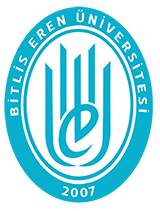| dc.contributor.author | Sunar, Ayse Saliha | |
| dc.contributor.author | Abbasi, Rabeeh Ayaz | |
| dc.contributor.author | Davis, Hugh C. | |
| dc.contributor.author | White, Su | |
| dc.contributor.author | Aljohani, Naif R. | |
| dc.date.accessioned | 16/12/21 12:06 | |
| dc.date.available | 16/12/21 12:06 | |
| dc.date.issued | 2020 | |
| dc.identifier.issn | 0747-5632 | |
| dc.identifier.uri | http://dspace.beu.edu.tr:8080/xmlui/handle/20.500.12643/9960 | |
| dc.identifier.uri | https://doi.org/10.1016/j.chb.2018.12.013 | |
| dc.description.abstract | MOOCs offer world-widely accessible online content typically including videos, readings, quizzes along with social communication tools on a platform that enables participants to learn at their own pace. The number of learners who sign up and attend the co | |
| dc.language.iso | English | |
| dc.publisher | Pergamon-Elsevıer Scıence Ltd | |
| dc.source | Computers In Human Behavıor | |
| dc.title | Modelling MOOC learners' social behaviours | |
| dc.type | Article | |
| dc.identifier.doi | 10.1016/j.chb.2018.12.013 | |
| dc.identifier.wos | WOS:000523598100033 | |
| dc.identifier.volume | 107 | |














